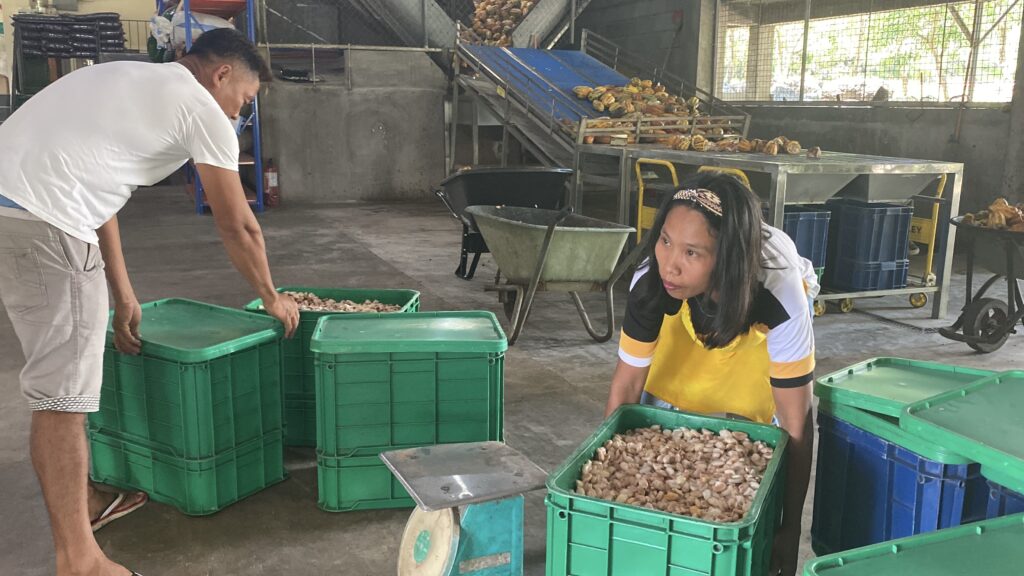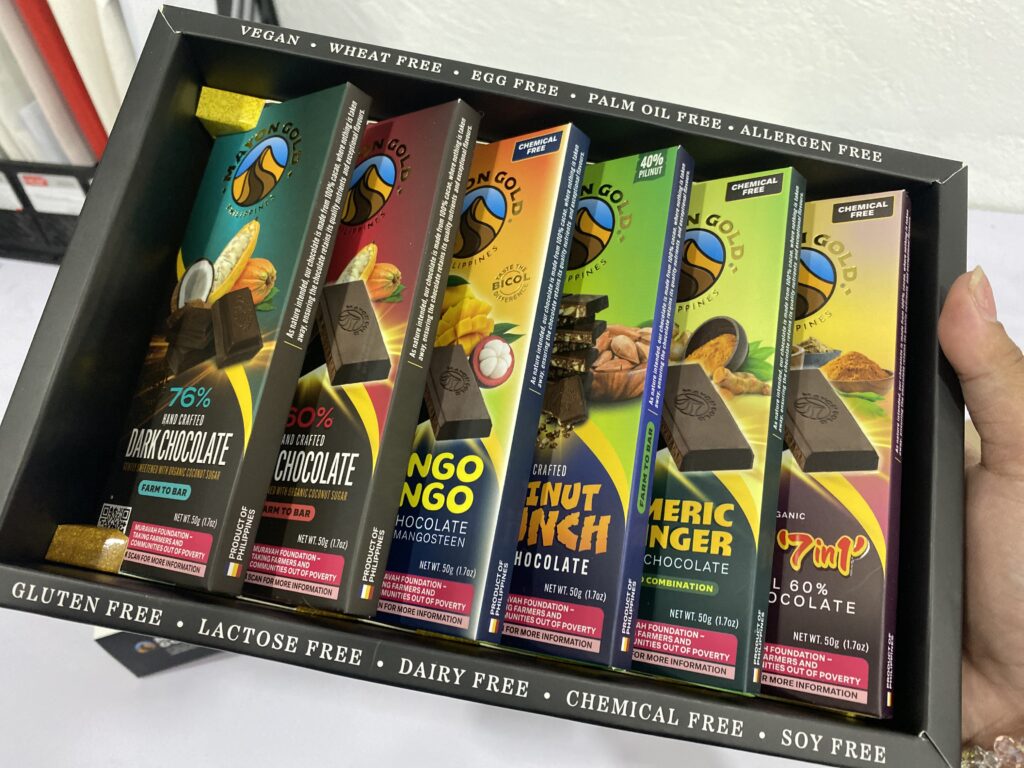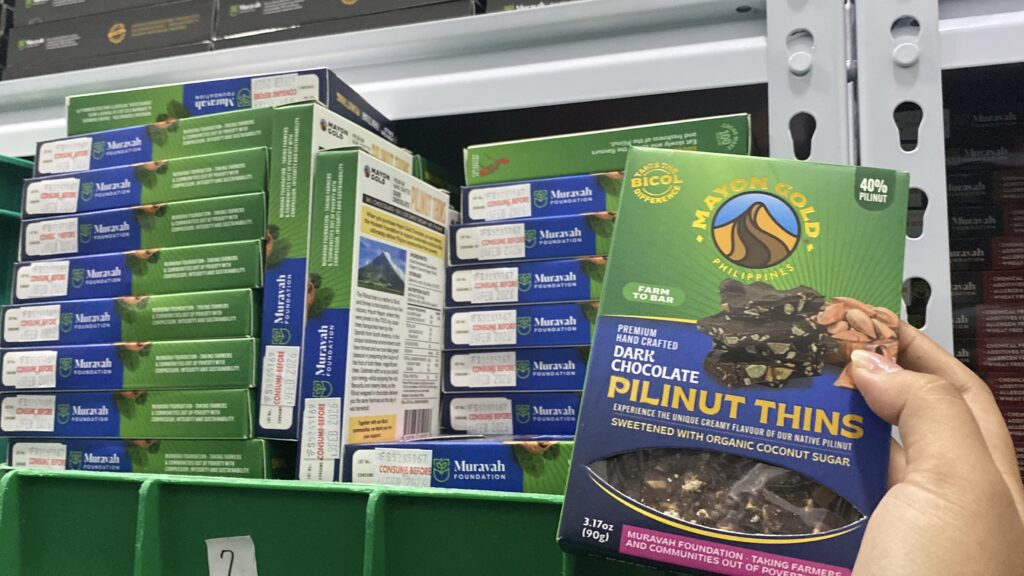In the quiet village of Sua in Camalig, Albay, a sweet revolution is unfolding—led by a real-life Santa Claus of sorts. But instead of reindeer and chimneys, he brings change through cacao beans and compassion.
Meet Robert Murray, 75, an Australian entrepreneur and chairman of the Muravah Foundation Inc., who’s turning chocolate into a tool for environmental stewardship and social transformation. Since founding the foundation in 2017, Murray has combined his love for education, sustainability, and chocolate into a unique model that uplifts communities and heals the planet.
A vision rooted in sustainability
Murray’s venture, Mayon Gold, is more than just a chocolate factory. Located in Sua, Camalig, this artisanal chocolate maker uses locally sourced cacao to create high-quality confections while fostering sustainable livelihoods for over 500 farmers across Albay.
By paying farmers double the market price and incorporating their produce into the chocolate-making process, the foundation significantly increases their income—by as much as four times—offering a pathway out of poverty while preserving Albay’s rich agricultural heritage.
But beyond economics, Murray’s work is deeply ecological. Mayon Gold embraces biodiversity farming—an approach that restores and nurtures the land rather than depleting it. In contrast to monoculture systems that dominate the global cacao industry and have devastated regions like Ghana, Murray co-plants cacao with coconut, banana, and fruit trees. This natural intercropping not only maintains soil fertility but also encourages natural pollination, reducing the need for chemicals and boosting resilience against climate impacts.
“It’s all biodiversity farming,” Murray explains. “When you chop down banana trees, they attract the insect that pollinates the cacao. Bees are too big for that. Everything here works together.”
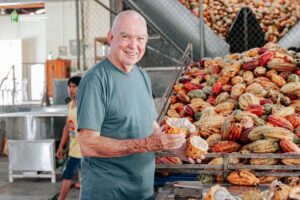
From charity to chocolate
Murray’s journey began not with chocolate, but with compassion. In 2008, a chance conversation with a Filipino domestic worker in Hong Kong led him to sponsor her relatives’ education in the slums of Marikina – relatives who originally hailed from Albay. This simple act sparked the birth of the Muravah Foundation, which now supports 50 children and their parents in Albay.
Murray’s philosophy is grounded in sustainability—not just environmental, but social. “Too many charities don’t deliver lasting solutions,” he says. “You give someone a well or a cow, but that’s not always enough. Education is the key.”
To sustain his growing foundation, Murray realized he needed a source of income that aligned with his values. That answer came, quite literally, from the ground. When he moved to Sua in 2010, he noticed wild cacao trees growing untapped across the landscape.
“I had no idea what they were at first,” he recalls. “Then someone told me—they’re wild cacao trees, heirloom varieties from the Spanish era. That’s when the idea hit.”
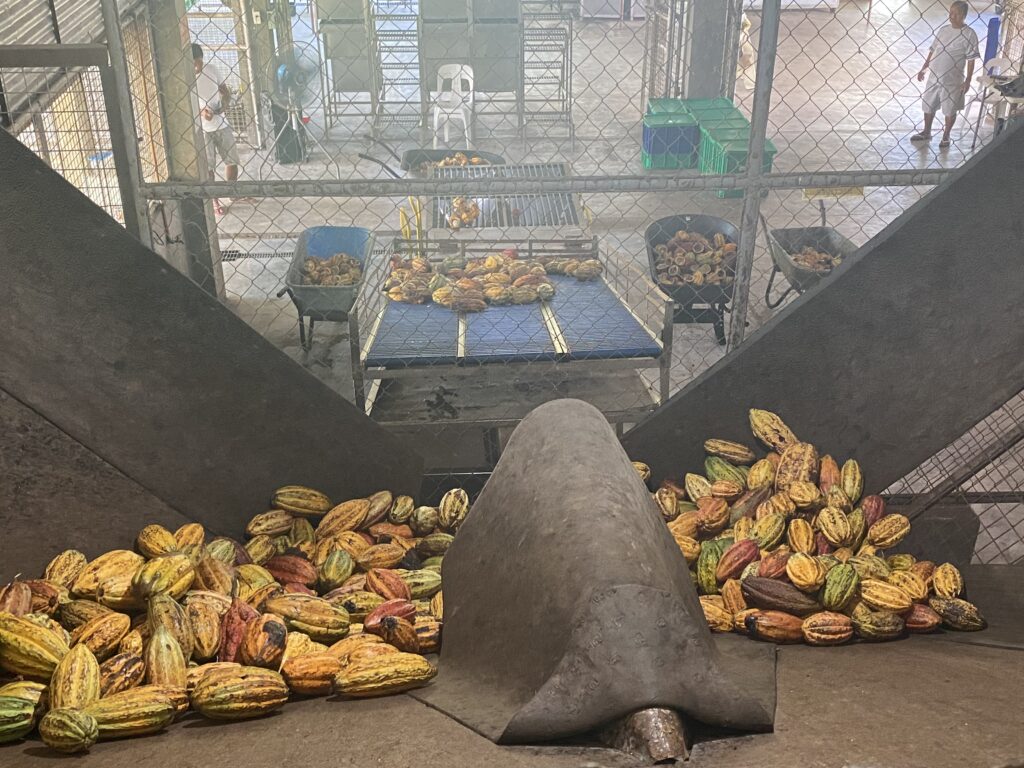
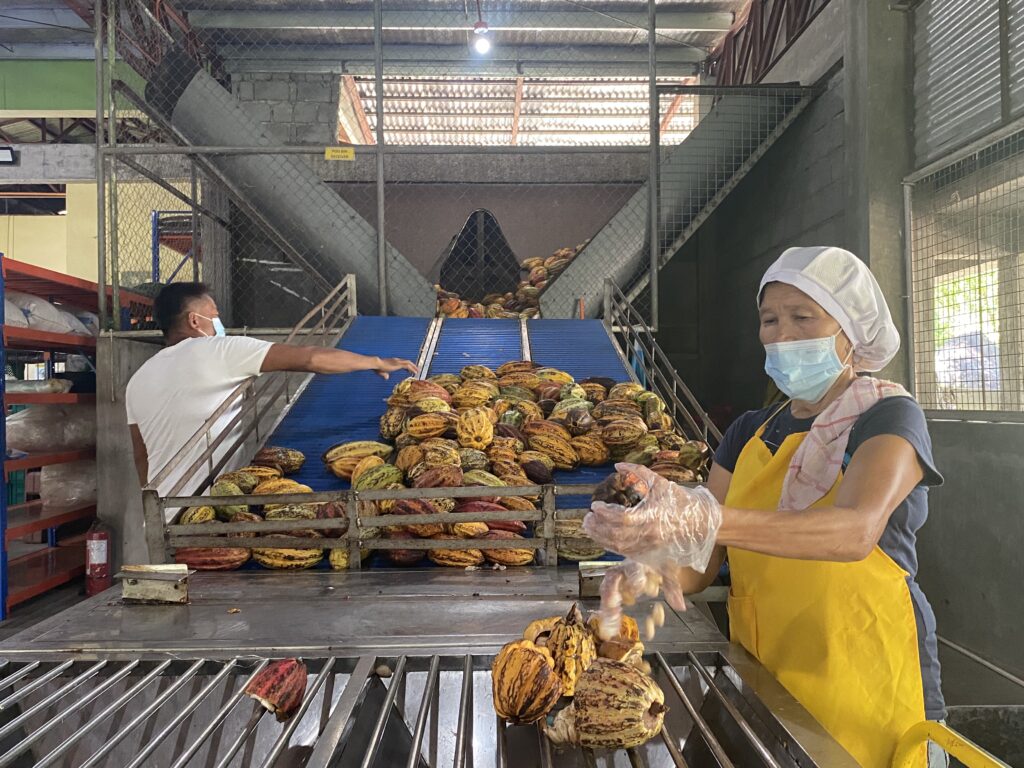
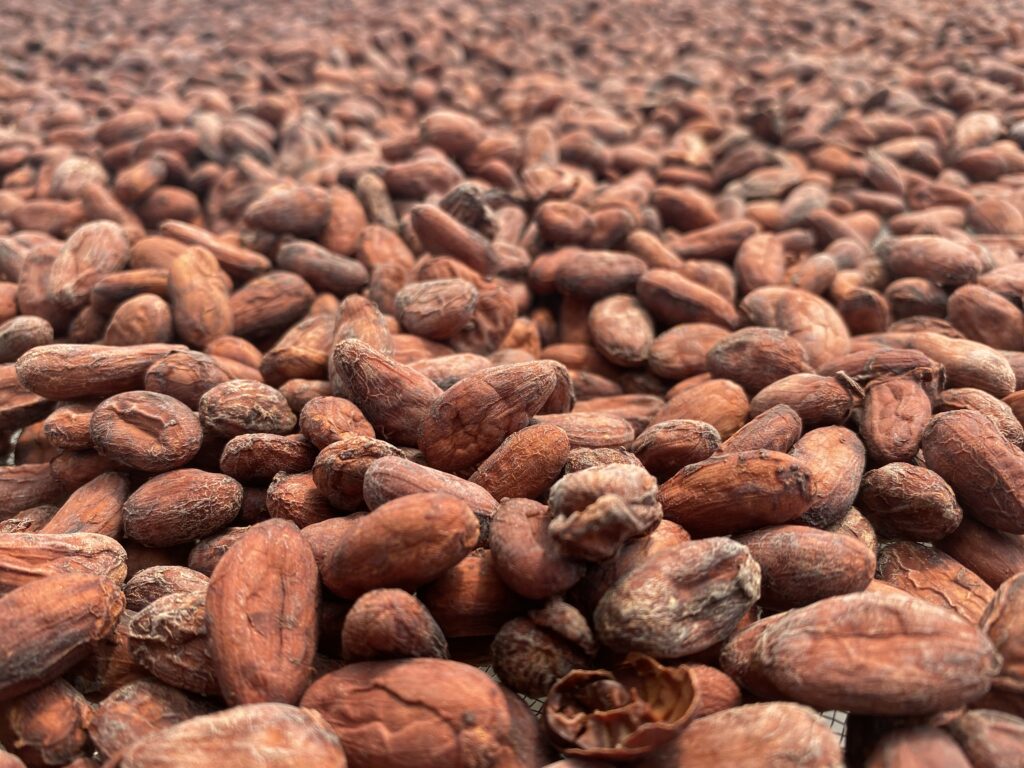
Chocolate with a mission
In 2015, Murray and his team began cultivating cacao seedlings from the wild trees, distributing over 30,000 across the district. Despite early losses, around 20,000 survived, laying the foundation for a thriving local cacao industry.
Murray built a small chocolate factory, equipped with help from Department of Trade and Industry, Department of Science and Technology and Department of Agriculture- Philmech, and donations and support from his friends overseas. The resulting products—dark, rich, and made with minimal sugar—have earned praise from chocolate lovers in Australia, Belgium, and San Francisco.
The chocolates are made with organic coconut sugar and retain natural cacao butter, making them suitable for diabetics and health-conscious consumers. Their flagship 100% dark chocolate is especially popular among Filipinos, often melted into a rich, satisfying drink with coconut milk.
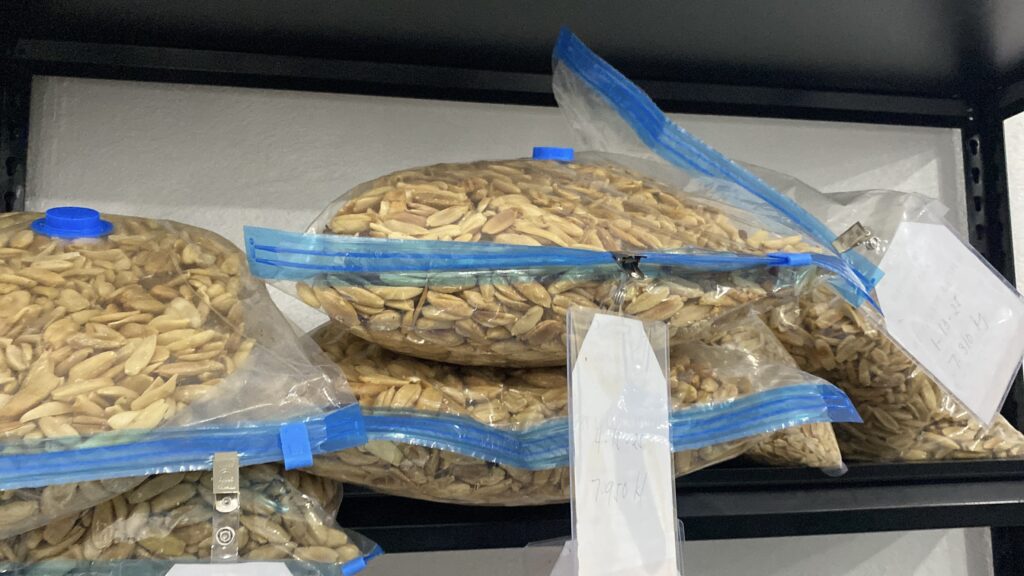
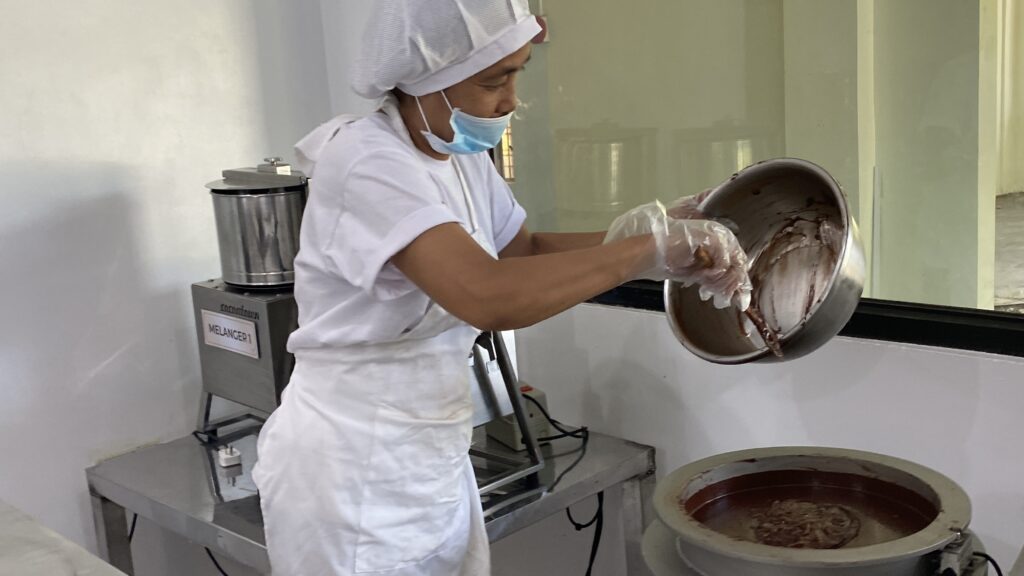
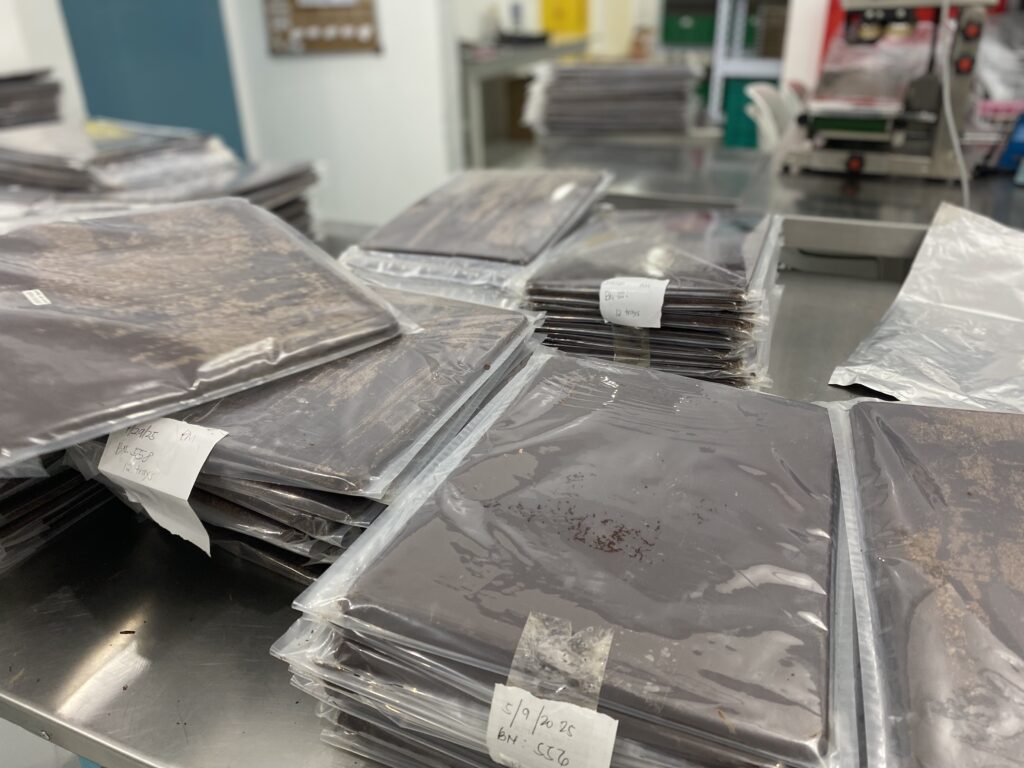
Local impact, global Inspiration
The Muravah Foundation doesn’t stop at education and farming.
For locals like Allan Aguilar, 53, the foundation’s reach is deeply personal.
“The medication for my thyroid cost Php 29,000 at the time,” he shared. “Muravah stepped in and helped me buy it. I’m extremely grateful. They’ve helped me and my wife through so much, especially during the pandemic.”
Marife Moyo, 31, a single mom and one of the factory workers, says the foundation supported not just her daughter, but also her siblings after her father passed away in 2018.
“I wouldn’t know what to do without this job,” she said. “It’s close to home, the salary is fair, and Sir Robert really cares. He even helped with our housing.”
“We’re employing 26 people now,” Murray shares. “Many of them are single moms or folks who never had stable jobs before.”
After a typhoon devastated Sua two years ago, Murray led relief and rebuilding efforts—constructing typhoon-proof starter homes, rebuilding schools, and launching community clean-ups. He also built a health center so mothers no longer need to travel far to give birth.
Building a greener tomorrow
At the heart of it all is an ethos of regeneration—of people, land, and possibility.
Murray’s efforts are a powerful reminder that environmental sustainability and social equity are not separate goals—they are intertwined. Through Mayon Gold, he’s not only protecting heirloom cacao varieties and promoting biodiversity but also creating a fairer, more resilient economy rooted in community care.
As global chocolate demand grows, Mayon Gold offers a compelling model for ethical, eco-conscious chocolate-making. It’s a model that shows how, when guided by integrity and love, even something as small as a cacao bean can plant the seeds of lasting change.
And in every bite of Mayon Gold chocolate, you taste more than just sweetness—you taste a future that’s fair, sustainable, and full of hope. I With contributions from Nicole Castillo, Helen Grace Balean and Hannah Franchezka Boragay
